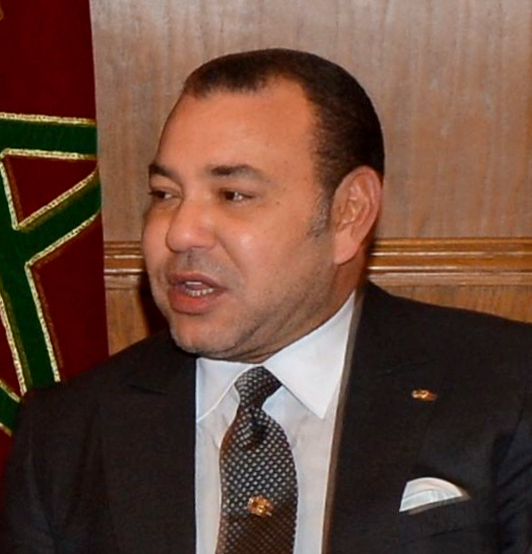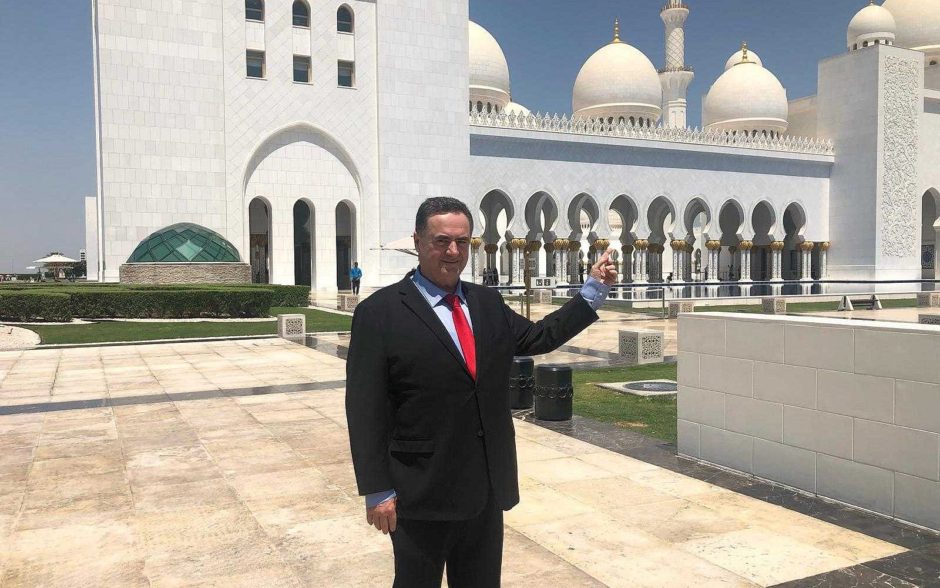Shortly after defeating Gideon Sa’ar decisively in the Likud Party’s December 26 leadership race, Prime Minister Benjamin Netanyahu outlined his major strategic objectives.

Apart from “finalizing” Israel’s borders and lobbying for U.S. recognition of its sovereignty in the Jordan Valley, the northern Dead Sea and the Jewish settlements of the West Bank, he would work for a defence alliance with the United States, the containment of Iran and its Shi’a allies, and the normalization of relations with Arab countries.
“The opportunities are within reach,” he claimed.
It’s debatable whether Netanyahu can attain any of these ambitious goals, since he faces a third general election on March 2 that could derail his premiership. Alternatively, he could face a prison term, having been indicted on three criminal charges of corruption.
Netanyahu’s desire to normalize ties with Israel’s Arab neighbors in the absence of a peace agreement with the Palestinians will be one of his most daunting challenges.
Israel signed historic peace treaties with Egypt in 1979 and with Jordan in 1994. But Israel’s chances of signing still more peace treaties with Arab states are dim due to its seemingly intractable conflict with the Palestinians.
Recognizing the severity of this problem, Israeli Foreign Minister Israel Katz has lowered his expectations. Several months ago, he disclosed he has been promoting a diplomatic initiative that would yield non-aggression rather than peace treaties with Arab countries in the Persian Gulf region. These would enable Israel to maintain friendly bilateral cooperation with them until formal peace treaties are attainable. Katz said he presented his plan to several Arab foreign ministers and to Jason Greenblatt, the then U.S. special envoy to the peace process, during his visit to the United Nations in New York City in September.
Katz’s demarche could not have taken place unless his Arab interlocutors were politically and psychologically ready for it.
For the past few years, the Israeli government has made a special effort to build bridges to conservative Arab states like Saudi Arabia, the United Arab Emirates and Bahrain, all of which are officially locked in a state of war with Israel, but which have been drawn to Israel over fears concerning Iran. The preeminent Shi’a power in the Middle East and a potential member of the exclusive nuclear club, Iran has been making political and military inroads at their expense, particularly in Syria, Lebanon, Yemen and Iraq.
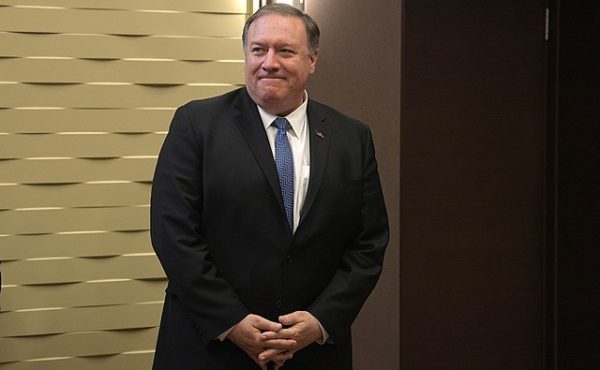
The United States, which has been at loggerheads with Iran since the Islamic revolution in 1979, has encouraged this budding informal relationship. As recently as last month, U.S. Secretary of State Mike Pompeo urged Arab governments to bury the hatchet with Israel. As he tweeted, “It’s time for Arab countries to abandon boycotts and engage Israel.”
In his tweet, Pompeo listed a link to a New York Times article about an unprecedented meeting that took place in London last month during which a group of liberal Arab politicians, diplomats, journalists, artists and Quranic scholars from various Arab countries called for Arab engagement with Israel. The gathering was organized by the newly formed Arab Council for Regional Integration, which is headed by Mustafa el-Dessouki, the Egyptian managing editor of a major Saudi magazine, and Joseph Braude, an American Middle East specialist of Iraqi Jewish descent.

Funded by donors in the United States, the council rejects doctrinaire Arab thinking about Israel. But it is insistent that Israel cannot normalize relations with the Arab world without first resolving the long-simmering Palestinian question within the framework of a two-state solution.
Israel tried but failed to resolve this issue during the Oslo peace process, which crashed following the eruption of the second Palestinian uprising in 2000. Ehud Olmert, an Israeli prime minister, vainly attempted to break the impasse in 2008. Netanyahu entered into peace talks with the Palestinian Authority in 2013, but they collapsed within a year.
In 2002 and 2007, the Arab League offered to normalize its relations in exchange for a full Israeli evacuation of the occupied territories and a mutually satisfactory resolution of the Palestinian refugee issue. Israel rejected the Arab demand for a withdrawal, being unwilling to vacate the West Bank and its network of Jewish settlements.
Since 2015, Netanyahu has gradually distanced himself from a two-state solution while expanding settlements and raising the prospect of annexing the Jordan Valley, which comprises approximately one-quarter of the West Bank. In the meantime, he has offered the Palestinian Authority nothing more than limited autonomy in parts of the West Bank and agreements to bolster its economy.
Despite the breakdown of the peace process, Israel has not abandoned the option of a rapprochement with its Arab neighbors. Believing he can have his cake and eat it, Netanyahu seeks to maintain the occupation of the West Bank and deny the Palestinians statehood, while normalizing relations with the Arab world.
Netanyahu’s thinking evolved against the backdrop of visits by Israeli cabinet ministers to pro-American Arab states and of comments issued by influential Arab political figures.
Toward the close of 2018, two intriguing events unfolded. Netanyahu was invited to Muscat, the capital of Oman, by its ruler, Sultan Qaboos bin Said. Soon afterward, Culture and Sports Minister Miri Regev attended an international judo tournament in Abu Dhabi during which Israel’s national anthem was played for the first time in the Arabian peninsula. This summer, Katz appeared at an environmental conference in Abu Dhabi.
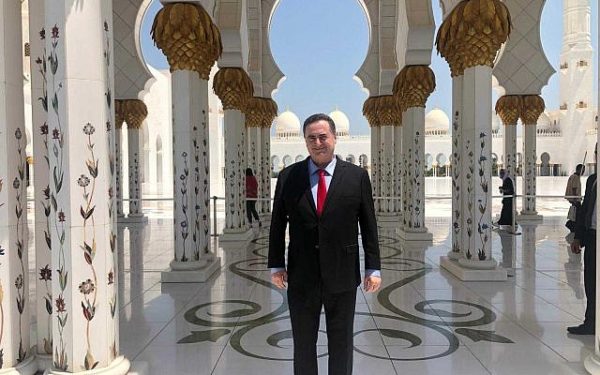
In another telling development, Crown Prince Mohammed bin Salman, the heir apparent to the of Saudi throne, told American Jewish community leaders in 2018 that Israel has a right to exist. As he said, “I believe that each people, anywhere, has a right to live in their peaceful nation. I believe the Palestinians and the Israelis have the right to have their own land.” But in an important caveat, he said that Saudi Arabia could not have “formal” or “normal” relations with Israel unless the Palestinians receive statehood.
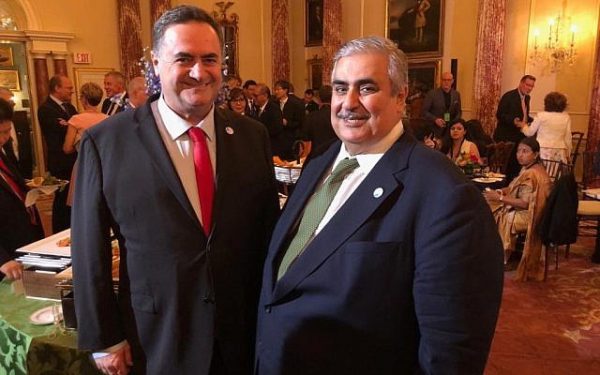
Bahrain’s foreign minister, Khalid bin Ahmed al Khalifa, who recently posed for a photograph with Katz in Washington, D.C., has also voiced an interest in forging peaceful relations with Israel on condition that the national aspirations of the Palestinians are met.
Three months ago, Sudan’s new foreign minister, Asma Abdullah, expressed agreement in principle with establishing diplomatic relations with Israel after acknowledging that most Arab states have some degree of relations with Israel.
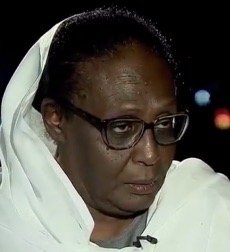
Abdullah, however, said that Sudan would not form relations with Israel unless the Palestinians achieve statehood. As she told a reporter, “Because of that, I am telling you now is not the time for people to talk about normalizing relations with Israel. Until these unresolved issues are resolved, I don’t think it is possible to open the door.”
Israel’s ongoing conflict with the Palestinians is certainly an obstacle blocking its efforts to integrate itself into the Middle East.
Kais Saied, the newly-elected president of Tunisia, compared the possibility of Arab relations with Israel to “high treason.” Last month, King Mohammed VI of Morocco reportedly vetoed a proposal by Pompeo to bring Netanyahu along with him on a trip to Rabat.
Judging by the reality on the ground, Israel is still a long way off from establishing formal relations with the majority of its Arab neighbors.
